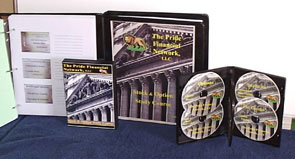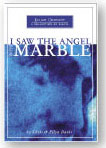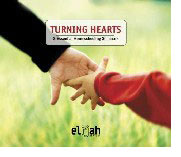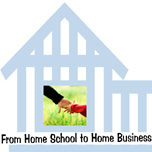Developing an I.E.P.
Read past issues of the
e-journal HERE>> Sign up below.
by Ellyn Davis
The I.E.P.
The last newsletter introduced the concept of developing an IEP for each child to help guide you through the home school years. It also suggested creating a chart of the different areas you want to develop in your child. You can read that newsletter HERE.
IEP is educational jargon for Individualized Educational Plan. What this means is that a specific educational plan is developed for each child. In an institutionalized school setting, IEPs are often reserved for children with learning difficulties so that their progress can be charted in areas such as reading or math. This is not the kind of IEP we think home schoolers need. The kind of IEP we recommend is one that helps you assess your children’s strengths and weaknesses in the areas of competence your family believes are important.
What areas should we use to assess the strengths and weaknesses of our children? Over the years we have concluded that there are three areas of competence that are vital to becoming strong, capable, effective, and productive adults, and that are essential to effectively fulfilling any future role our children may have. These three areas of competence are relationships, skills, and information. These competencies are in this order of importance: relationships first, skills second, and information last.
Relationships First. (See the February 22, 2007 newsletter on Building Relationships.)
We believe that there are four relationships in life, and our emotional, physical, and spiritual well-being depends on how balanced we are in these four areas of relationships.
Our first and primary relationship is with God. Everyone relates to God in some form of acknowledgment or denial. Our relationship with God is crucial because it affects how we relate to everything else. How we view God and how we think He views us will be reflected in everything we do and in how we treat the other three relationships of life. Our relationship with God gives us our internal sense of what matters in life, of right and wrong, and of who we are.
Our second relationship is with self. This not only has to do with personal care of our spirit, soul, and body, but how we view ourselves, what kind of people we are, what motivates and drives us, our value and belief systems, our sense of meaning and purpose. Who we are inside is manifested in how we treat our minds, bodies, and emotions, and is a direct reflection of our relationship with God.
Our third relationship is with others. Our culture encourages us to consider people disposable, as commodities, and makes possessions and personal pleasure more important than people. But Jesus said that loving others as yourself is the second great commandment, second only to loving God.
Our fourth relationship is with created things: how we relate to time, to money, to work, to our possessions, to animals, to the earth, and so on.
The actual meaning of the word righteousness is “right relationship,” and refers to being “rightly related” to God. We want our children to be righteous in their relationship with God, but also “rightly related” in each of the other areas of relationships.
Skills Second. When we think of all the possible skills a person could develop, the list is endless. However, if we ask ourselves, “What are the bottom line skills of life?” the list shrinks considerably. Each family’s bottom line life skills will be different, but these are the skills we feel every adult should have: Relational Skills, Thinking Skills, Gender Skills, Aptitude/Interest/Gifting Skills, and Academic Skills.
Relational Skills. These are skills that enhance our relationship with God: skills like a familiarity with the Bible, the ability to use Bible study materials, a basic understanding of church history and different church doctrines, perhaps even the ability to translate the Bible from the original Greek or Hebrew. There are other spiritual skills such as an active pray¬er life, praise and worship, and so forth. None of these skills is essential for salvation, but each gives great¬er depth to our relationship with God.
There are certain skills that smooth the way for relationships with others. For example, Communication skills such as reading, writing, speaking, good body language, listening, and observing help build relationships. Good manners are also important relational skills. Character is another relational skill. Character qualities are those attitudes and actions that pave the way for better relationships with God, ourselves, others, and created things such as time, money, possessions, and work.
In addition to communication skills and character, social skills are very important. Social skills include such things as: ways of interacting with others, the ability to put other people at ease and engage them in conversation, prop¬er ways of persuading and influencing others, knowing how to act in different social situations, strategies for resolving conflict, and so forth.
Because we expect our children to have to enter the work force at some time in their lives, we include business skills under relational skills. Why? Because much of what makes an employee valuable to a company or to a boss is not technical expertise but character qualities such as punctuality, dependability, initiative, and honesty, as well as relational skills such as working well with others, submitting to authority, and so on.
Thinking Skills. In the 1940s, British author Dorothy Sayers warned that schools were teaching children everything except how to think, and non-thinking children become adults who are easily swayed by the opinions of others. Sayers said, “the sole true end of education is simply this: to teach men how to learn for themselves; and whatever instruction fails to do this is effort spent in vain.”
In the book Endangered Minds, author Jane Healy explains that children (and adults) today have shorter attention spans, are less able to concentrate, and are less able to absorb and analyze information than any previous generation. In short, people today do not know how to think. We believe that thinking skills are crucial life skills that prepare children to become adults who can solve whatever problems the future brings their way.
Thinking skills include such skills as knowing how to learn (self-learners can pick up whatever information they need when they need it); research skills (knowing how to find what you need to know); logic (recognizing truth and fallacy); and organizational skills (being able to prioritize, to manage time, money, and surroundings, getting the important things done, etc.). Thinking skills also include understanding world views, and having the doctrinal training to be able to give “a reason for the hope that is within you.”
Gender Skills. As we prepared our sons for adulthood, we tried to determine which skills will make them better men, husbands, and fathers.
There are many traditionally masculine skills that are very helpful for husbands to know such as basic auto mechanics, how to repair simple machines, building and wood¬working skills, home main¬tenance, perhaps land management and how to raise food or livestock.
These skills will not only come in handy when our boys are adults, but they also give a sense of manliness which is a component of true masculinity.
There are other skills that may seem superficial, but can have a real bearing on manliness in our culture: skills like the ability to play a sport well enough to take part in a pick-up game of basketball or football, or to play golf, or at least the ability to discuss a sport intelligently. These are the things men in our culture do when they get together, so it may be wise for our sons to have some understanding of them.
In the same way, there are certain skills that make being a woman, wife and mother more satisfying such as preparing nourishing meals, home management, interior decorating, child care, sewing, and so forth.
Aptitude/Interest/Gifting Skills. God has made each of our children with unique aptitudes, interests, and gifts. We have to assume that these innate abilities are part of God’s plan for each child and somehow fit into the life purpose God has for him or her.
For example, our son Blake has an artistic bent. He has noticed colors and textures and tried to draw things since he was very young. Our son James is gifted with an understanding of people and also has a desire to sing and act. Seth is totally different from James and Blake. He understands machines and how they work
As we have recognized these aptitudes, interests, and giftings, we have encouraged them by providing opportunities to develop them. In every way we can, we “feed” the interests, develop the aptitudes, and encourage the giftings.
Academic Skills. Reading, writing, and math are crucial life skills. All of the other subjects fall under the category of Information.
Information Last. Information is our lowest priority, ranking below relationships and skills, even though diplomas, degrees, and SAT scores hinge on the accumulation of vast amounts of information. There is no question that the 3-Rs (reading, writing, and arithmetic) are foundational to all further learning, so they must be mastered. However, we believe that once our children are rightly related to God, self, others, and created things and once they acquire the life skills mentioned above, they can pick up any other information they need when it becomes useful or when it is required (such as for admission to a certain college program).
Top Resources
General Resources
The Seven Habits of Highly Effective People by Stephen Covey. Covey’s ideas are so widely circulated that if you don’t read his book, you’ll be at a disadvantage when people start talking about concepts from the book like “win-win” and “synergy.” But that’s not the real reason to read his book. The real reason is that it is one of the absolute greatest distillations of the concepts that it takes to move toward success and effectiveness in every area of life, including relationships.
The Seven Habits of Highly Effective Families by Stephen Covey. Covey defines success in relationships as "a beautiful family culture" and encourages every parent to do some soul searching to become aware as to what really is priority in life. Then, he suggests we put "first things first." Most of us really want to have family come first, but doing that is often easier said than done. In this book, Covey clearly points out the essentials...such as establishing effective communication lines through family meetings and one-on-one talks with the kids. One of the most transforming things in this book is his description of how to create a family mission statement. This becomes a guiding principle of family life and was invaluable to our familyl as the children were growing up.
How to Really Love Your Child. In this extrordinary book, Dr Ross Campbell helps parents manifest love toward their children in all situations of child-rearing through the teen years. Many parents do not know how to express affection in ways that make a chid feel loved. This book details practical demonstrations of that are meaningful to children.
How to Really Love Your Teenager is specifically addressed to parents of teens. Dr. Ross Campbell believes that parents experience their greatest difficulties at this stage because they are unable to relate to the moodiness and self-identity issues that teens go through. So parents often harbor misconceptions and face disappointment in their relationships with their teens. This book offers ideas to help you communicate unconditional love, handle teenage anger . . . as well as your own, deal with adolescent depression and help your teenager grow spiritually and intellectually.
What is a Family.
This is one of the best books we have ever read. We re-read it periodically, and each time are brought to tears—tears of longing because it so perfectly expresses what we want our family to be like. Edith Schaeffer shares how the family is meant to be the birthplace of creativity: a center for the formation of relationships: a museum of wonderful memories that provide a hedge of protection around our children; an educational control; a perpetual relay of truth; and more.
For the Family’s Sake. Edith’s daughter Susan Schaeffer Macaulay takes up where her mother left off. By showing the power a godly home can have in a child’s life, she challenges every one of us to treasure the precious time we have at home with our children.
For the Children’s Sake.
Susan Schaeffer Macaulay continues to follow in her mother Edith Schaeffer’s footsteps, and in this book describes how to develop relationships filled with grace, beauty, and love. She views education as “the diet that opens doors for each child to build a relationship with God, other persons, and the universe.”
A Simple Choice by Deborah Taylor-Hough. We consider all of the resources above absolutely essential, because they each take a different approach to discovering the things that really matter in life. Read this book first, because it touches lightly on many topics the other resources tackle in detail. It begins by helping you develop a family mission statement, then leads you through practical ways to live out your priorities in your finances, in your home management, and in your family life.
Margin by Richard Swenson.
We are convinced that home schooling succeeds or fails depending on the “margin” we build into our lives. Margin is the space that should exist between us and our financial, emotional, spiritual, and physical limits. It is the time to build relationships, to reflect on life, to live deliberately and unhurriedly. It is the money to invest in important things. It is the emotional reserve to love, laugh, and relax. It is the time to do what you value most. This book discusses how we crowd margin out of our lives and what we can do to regain it.
The Overload Syndrome by Richard Swenson picks up where Margin leaves off, explaining the pressures of our culture that are taking a toll on all that we are and do. Written in the form of “prescriptions” to counteract the life-draining, health-damaging effects of overload, this book can truly restore health, save marriages, reconcile children, and bring back the joy of living.
Restoring Margin
to Overloaded Lives is a workbook that helps you examine your life to find out where your “overloads” are; how you seem to keep accumulating them; and what you can do to eliminate them.
Relational Skills Resources
The Five Love Languages. Unhappiness in a relationship often has a root cause: we speak different love languages. Each of us has a "love language" of certain actions and words that when others use them it makes us feel loved. Do you feel most loved when those you love spend quality time with you, give you gifts, speak words of affirmation, perform acts of service, or when they touch you affectionately? This is a very thought-provoking and helpful book because it has given us greater understanding of how to show we care in a way that is most meaningful to the other person.
The Five Love Languages of Children and The Five Love Languages of Teenagers focus on finding the form of love most meaningful to each of your children and how to express love in ways that they can truly appreciate and receive it.
The Blessing. In the Bible, the parents' blessing was especially powerful, often defining the course of a child's life. This book discusses how a parent's words can shape identity for good or evil, and how what we speak over our children can hlep them become who God means them to be. It also shares the heartache a lack of parental blessing can bring, and how we can confer a blessing upon our children.
Emotional Intelligence and How to Raise a Child With a High EQ are the seminal works on understanding emotional intelligence and how to develop it in your children (and yourself).
Aptitude/Interest/Gifting Skills Resources
Discover Your Children’s Gifts by Don & Katie Fortune.
Part of training our children is discovering who God created them to be and the “works” He created them to do. This book looks at the spiritual gifts latent in each child and explains how parents can recognize and best develop these gifts for useful service. Based on Proverbs 22:6 and Romans 12: 6 - 8, it discusses how gifting affects communication, career possibilities, and more.
Discover Your Child’s Learning Style by Mariaemma Willis and Victoria Kindle-Hodson.
One mother wrote, “This is the most important book I have read in six years of homeschooling.” Does your child learn best at a certain time of day? Does background music increase or decrease reading comprehension? Does he or she study better alone or with others? There are more aspects to a student's learning style than the simple modes of visual, auditory, or kinesthetic. A “learning style profile” takes into account a child's talents, interests, preferred learning environment, and disposition, as well as the three familiar modes. By using do-it-yourself work-sheets, the guide helps you develop your child's learning style profile.
The New Birth Order Book by Kevin Lehman.
Is your child the firstborn, a middle child, or the “baby?” Birth order and gender have a powerful effect on personality and aptitude. This book discusses how we are shaped by our place in the family.
Critical Thinking Skills Resources
Building Thinking Skills are the best critical thinking products available. In workbook format, they contain exercises in four thinking skill categories: similarities and differences, sequences, classification, and analogy. Each book has over 250 pages and is meant to be used for two or more grade levels. Pages are reproducible, or the student may write in the book. Choose Book 1 for grades 2 - 4, Book 2 for grades 4 - 6. At the Jr/Sr high level there are two books: Book 3 Verbal and Book 3 Figural. Teacher’s manuals are recommended for Book 2, for Book 3 Figural & Book 3 Verbal.
Critical Thinking is a course in practical logic for high school or advanced middle school. Through studying newspapers, speeches, and advertisements it covers basic concepts of logic, common errors in reasoning and how to discern them, and applying logic to everyday problems. Critical Thinking Book 1 and Teacher’s Manual or Critical Thinking Book 2 and Teacher’s Manual.
Endangered Minds by Jane Healy. This book clearly explains how certain ways of thinking actually prepare children for learning or for failure depending on the neural pathways that have been developed in early childhood. A significant book with many insights about how we can give our children the thinking skills necessary to learn and to face the challenges of everyday life.
Gender Skills Resources

If you haven't had a chance yet to tell me what home schooling means to you, please GO HERE NOW. It will just take you a few minutes and your input is invaluable to me.
Thanks!
WHAT HOME SCHOOLING
MEANS TO ME SURVEY

Any article appearing on this website may be copied or forwarded electronically provided that proper credit is given and that the article is not substantively modified.
No article may appear in whole or in part in a publication sold for profit or as part of any commercial endeavor without the written consent of Home School Marketplace. Any reprint must include an acknowledgement of where it came from and the sentence "Sign up for the Home School Marketplace newsletter at www.homeschoolmarketplace.com."
© Copyright 2006. Home School Marketplace, 1053 Eldridge Loop, Crossville, TN 38571.
|







